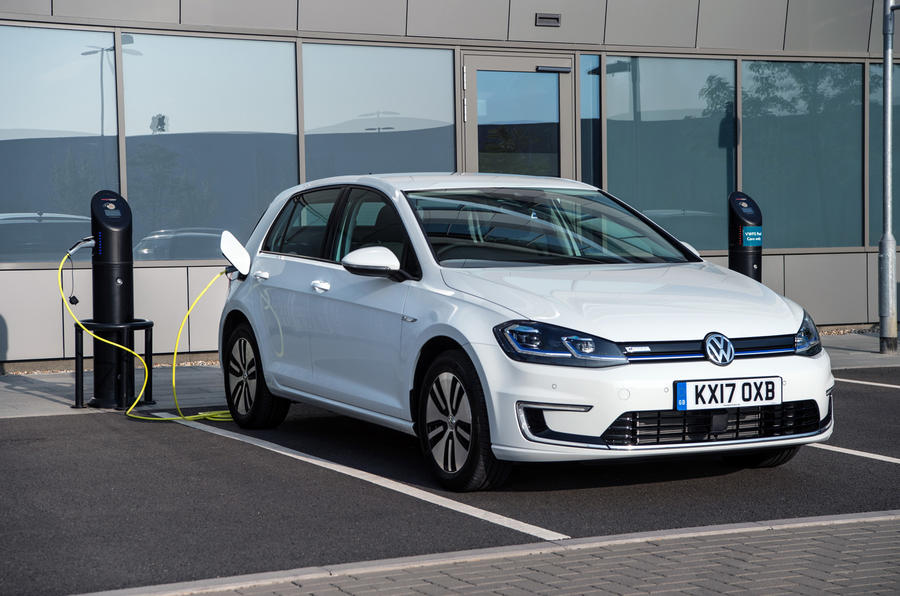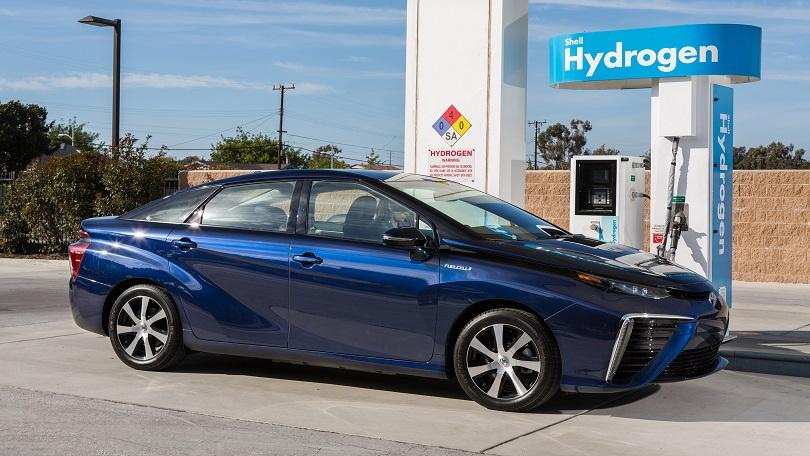By BCC High School Intern Alden Hegwood
Cars are responsible for nearly a quarter of emitted greenhouse gases contributing to global warming. Every second, 1000 tons of carbon dioxide are being dumped into the environment. In efforts to reduce carbon dioxide output into the environment, several car manufacturers produce at least one electric car. For these electric car owners, trips to the gas station are something of the past, as is increasing their carbon footprint by driving. Electric cars would seemingly be an instant hit with the public, but that has not been the case. Only about 540,000 electric cars have ever been sold in America as of early 2017 (Bhuiyan, 2016), nothing compared to the 17.5 million cars and trucks sold in 2016 alone (Overly, 2017). Why aren’t these electric cars selling better? It comes down to three main reasons – electric cars actually still have an environmental impact, pricing combined with the lack of practicality, and lastly, some concern over the longevity and reuse of the battery.

Photo Credit: Cecilia Jamasmie
Lithium-Ion batteries largely used in electric cars are composed of about 80% nickel, 15% cobalt, 5% aluminum, among other rare earth metals. Mining metal, especially the nickel, can pose environmental risks, contributing to the carbon footprint of an electric vehicle before it even hits showrooms. Mining nickel releases carbon into the atmosphere, releases sulphur dioxide gas, and can expose individuals to carcinogenic dust (Opray, 2017). Simply manufacturing the battery and components in an electric vehicle produce as much carbon dioxide as driving a gas powered vehicle for thousands of miles, often 40% of the car’s total emissions (Braun, 2013). On the positive side, the cars do not emit any pollutants locally as they are driven.
Electric vehicles are considerably more expensive than their gasoline powered counterparts. For example, a 2017 gas powered Golf has a starting price of $19,500, meanwhile an electric E-Golf of the same manufacturer starts at $30,500. To assist with the increased cost of electric vehicles, there is a federal rebate of $7,500 for electric car purchases and a Maryland rebate $3,000, bringing the cost of electric models not far from the gas version.

Photo Credit: Autocar
A challenge of electric vehicles is driving range. Driving distances between charges is miniscule compared with distances a gas car can travel between refueling. Driving range and refuel/recharge data is shown in the table below (edmunds.com). Electric vehicles are associated with “range anxiety,” the fear of running out of charge with no charging station nearby. This is a drawback for many consumers, as are the long charging times. Battery life also diminishes rather quickly with temperature change. Temperatures below 45 degrees greatly shorten driving range.
 Electric car battery capacity degrades very slightly after each charge cycle, similar to how the battery in your cell phone degrades over time. This may be concerning for car buyers. By the time a lithium-ion battery is deemed expired or reached the end of its life cycle, it may still hold up to 80% of its charge. Fortunately, the batteries are recyclable. Recycling companies are finding ways to reuse the batteries which still have capacity for other applications, to help reduce strain on the power grid, through energy storage and building power. Fully worn batteries may be recycled by freezing in liquid nitrogen, deactivating any remaining charge, then smashed so 96% of metals and materials can be recycled (Hall-Geisler).
Electric car battery capacity degrades very slightly after each charge cycle, similar to how the battery in your cell phone degrades over time. This may be concerning for car buyers. By the time a lithium-ion battery is deemed expired or reached the end of its life cycle, it may still hold up to 80% of its charge. Fortunately, the batteries are recyclable. Recycling companies are finding ways to reuse the batteries which still have capacity for other applications, to help reduce strain on the power grid, through energy storage and building power. Fully worn batteries may be recycled by freezing in liquid nitrogen, deactivating any remaining charge, then smashed so 96% of metals and materials can be recycled (Hall-Geisler).
Electric vehicles are an alternative to gasoline powered cars, but newer, more efficient solutions for the manufacturing of the batteries and how the energy is derived are on the way. For instance, the new 2017 Toyota Mirai, an electric vehicle that derives all its electricity from a hydrogen powered fuel cell currently only sold in California, has a combined driving range of 300 miles, and with access to hydrogen gas fueling, can be refueled in a matter of minutes. The only byproduct produced by the Mirai is water, water clean enough to drink! (Edmunds.com). This efficiency level combined with practicality is what planet-minded consumers want, and if you get thirsty on a hot day, that’s not a problem.
Works Cited
Arcus, C. (2016, May 31). Battery Lifetime: How Long Can Electric Vehicle Batteries Last? Retrieved February 02, 2018, from https://cleantechnica.com/2016/05/31/battery-lifetime-long-can-electric-vehicle-batteries-last/
AutoCar (2015), Volkswagen E-golf review. Retrieved February 08, 2018, from https://www.autocar.co.uk/car-review/volkswagen/e-golf
Bhuiyan, J. (2016, December 21). There have now been over 540,000 electric vehicles sold in the U.S. Retrieved February 02, 2018, from https://www.recode.net/2016/12/21/14041112/electric-vehicles-report-2016
Braun, P. (2013, November 14). Don’t Look So Smug: Your Tesla Might be Worse for the Environment Than a Gas Car. Retrieved February 02, 2018, from https://www.digitaltrends.com/cars/hold-smugness-tesla-might-just-worse-environment-know/
Conca, J. (2013, July 21). Are Electric Cars Really That Polluting? Retrieved February 02, 2018, from https://www.forbes.com/sites/jamesconca/2013/07/21/are-electric-cars-really-that-polluting/2/#7f8a1c0861bf
Hall-Geisler, K. (2011, December 6). Can Electric Car Batteries be Recycled? Retrieved February 02, 2018, from https://auto.howstuffworks.com/can-electric-car-batteries-be-recycled.htm
Jamasmie, C. (2014, May 27). Vale’s New Caledonia nickel plant under siege, up to $30m in damage. Retrieved February 08, 2018, from http://www.mining.com/vales-new-caledonia-nickel-plant-under-siege-up-to-30m-in-damage-83354/
Mlot, S. (2014, November 18). Toyota Fuel-Cell Car Expected Next Fall. Retrieved February 08, 2018, from https://www.pcmag.com/article2/0,2817,2472317,00.asp
Opray, M. (2017, August 24). Nickel mining: the hidden environmental cost of electric cars. Retrieved February 02, 2018, from https://www.theguardian.com/sustainable-business/2017/aug/24/nickel-mining-hidden-environmental-cost-electric-cars-batteries
Overly, S. (2017, January 4). Americans bought more cars than ever last year… Retrieved February 02, 2018, from https://www.washingtonpost.com/news/innovations/wp/2017/01/04/americans-bought-more-cars-than-ever-last-year-in-2017-things-could-get-bumpy/?utm_term=.574d22fdc284





